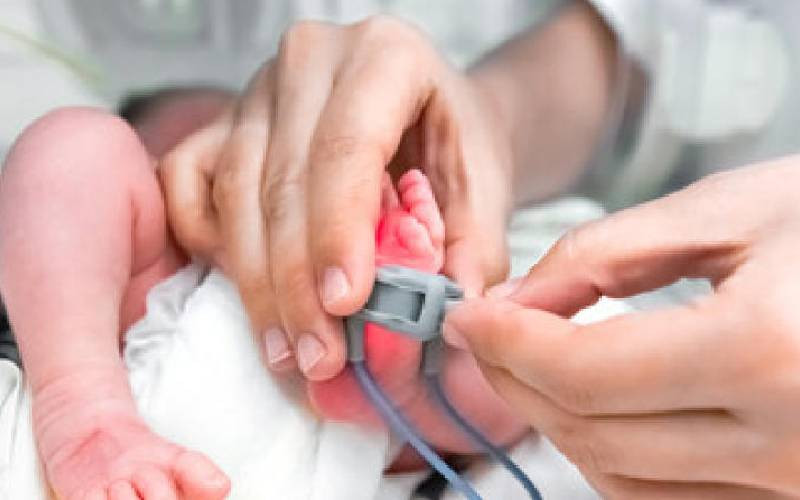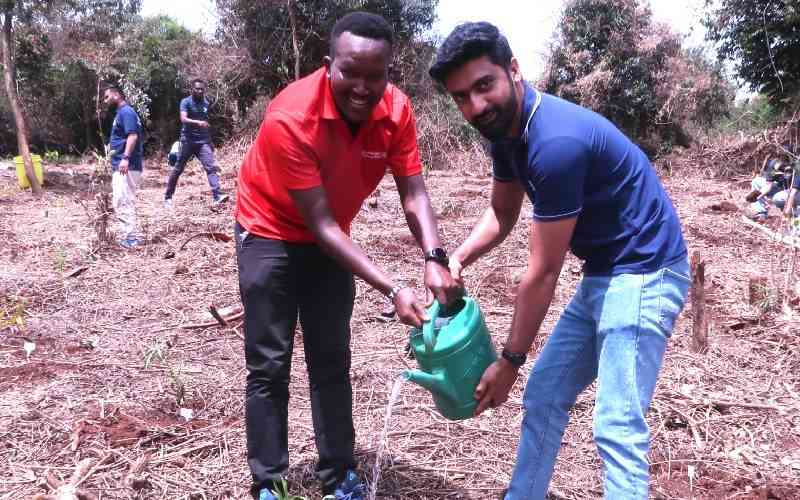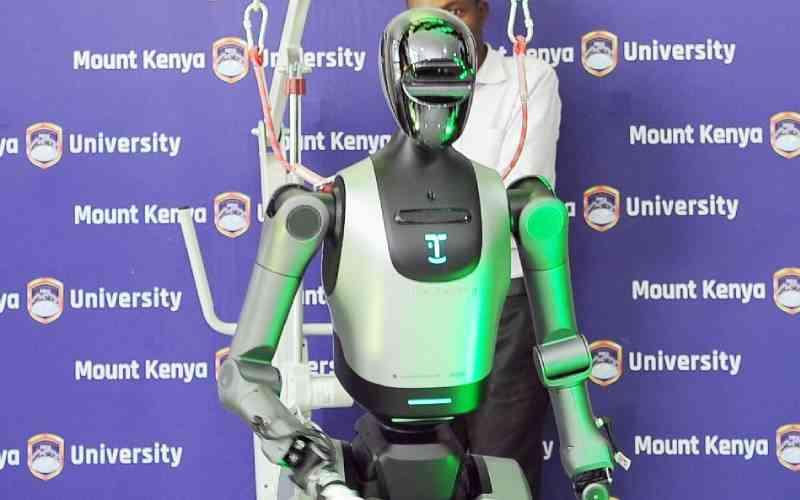
Every baby born in Kenya has a right to life. Yet too many of our babies don’t see their first month. Each year, an estimated 33,600 newborns die from preventable causes including prematurity, infections, and birth complications. Part of the problem is simple: newborn health is underfunded, even though it’s foundational to a stronger health system. The good news? We know what works, and with steady financing and focus, we can change this story.
On this year’s World Prematurity Day, our focus should have been on prematurity in Kenya, not only because preterm complications remain a leading cause of newborn deaths, but also because effective, proven solutions already exist. Simple, respectful practices like Kangaroo Mother Care (KMC) can transform outcomes by supporting feeding, warmth, infection prevention, and breathing. When delivered at the right time and in the right place, these interventions make a life-changing difference.
To accelerate progress towards newborn survival targets, the Ministry of Health and its partners, including Newborn Essential Solutions and Technologies (NEST360), developed a Newborn Health Investment Case based on national guidelines and using analyses. The practical plan is to ensure small and sick babies get timely, quality care where they are born and referred in case of complications. NEST360 Kenya is a program under Aga Khan University that supports the national and county governments in implementing a package of high-quality small and sick newborn care, including affordable technologies, training for clinicians and biomedical engineers, and local data.
The analysis shows that if counties equip sub-county hospitals to provide proper newborn care (including basic breathing support and Kangaroo Mother Care) and strengthen county referral newborn units, Kenya could save about 47,000 newborn lives by 2030 and reach the national target of 12 deaths per 1,000 live births. That is a doable target if services are available and staffing needs are met.
Crucially, these investments pay back multiple times, giving value for money. The analysis estimates a return of USD8–13 for every USD1 invested due to lives saved and long-term economic benefits. In budget terms, scaling nationally would require an increase of around 2.8 per cent of current health spending, serious, but affordable for an agenda that saves tens of thousands of lives and prevents long-term disabilities in survivors.
What does this look like at implementation? First, it requires sufficient, functional and dedicated spaces and more well-trained nurses to meet the needs of newborns. Unfortunately, many newborn units are congested, improvised and understaffed. The single biggest driver of quality is human resources. The investment case shows human resources account for the largest share of costs, and for good reason. Without adequate, trained staff on every shift, equipment sits idle, and babies slip through the cracks.
Another critical pillar to the survival of newborn babies is the need for essential equipment and medical supplies. In recent times, as a nation, our healthcare systems have been plagued by setbacks in the supply chain. For this to work, we need at the very least to make sure simple, reliable lifesaving equipment such as Continuous Positive Airway Pressure (CPAP) and phototherapy machines used to help babies with breathing difficulties, skin disorders and newborn jaundice, respectively, are available.
It goes without saying that medicines and supplies, whether antibiotics for sepsis to caffeine for preterms, must be on the shelf every day, avoiding frequent stockouts and dangerous interruptions in care.
How much will it cost? An essential question that matters to policymakers. The numbers are clear and within reach. Upgrading a county referral hospital newborn unit to standards stipulated by the government, including a newly built newborn unit, is estimated at Sh100 million, while for the sub-county hospital, about Sh44 million. However, for counties that may have minimal resources but still want to implement, they could do a moderate scenario, which is halfway to the government standards, assuming 50 per cent of newly built, fully equipped facilities and renovation of existing facilities, an estimated cost of Sh59 million at the county referral facility, while for subcounty facilities, Sh24 million
The investment case prioritises functional sub-county newborn units in every county, backed by strong county referral units. That puts lifesaving care closer to families and reduces dangerous delays.
Now that we have a clear investment case, three important steps must take place. Counties need to earmark funds in their budgets for space, staffing, and device maintenance, with donors such as NEST360 coming in to catalyse and not as the primary source of funding. Counties must take the lead, with the national government encouraging county governments to set aside ring-fenced budgets for newborns.
Second, the challenge of hiring and retaining nurses must be settled. There needs to be set shift-appropriate nurse-to-baby ratios, considering that premature babies require complex special care, and invest in mentorship for skills building.
Third but not least, there is a need to invest in data systems through data officers cadres to support data collection and use for continuous quality improvement, to raise the standard of care and improve the likelihood of saving lives.
Stay informed. Subscribe to our newsletter
The country knows where to invest, what it costs, and what we stand to gain in saving lives, in dignity for families, and in the country’s future productivity. On World Prematurity Day this year, let us all commit, the national government, counties, partners, and the private sector, to investing now. Every Kenyan newborn deserves the chance to survive and thrive.
Dr Julliet Omwoha is the Head of Newborn and Child Health at the Ministry of Health, while Rose Kamuyu is a Health Economist, NEST360







